Pictures. C-section post-morten: Israel murdered his mother, father and three brothers. Fotografías. Cesárea postmorten: Israel asesinó a su madres, su padre y sus tres hermanos. ENG ESP
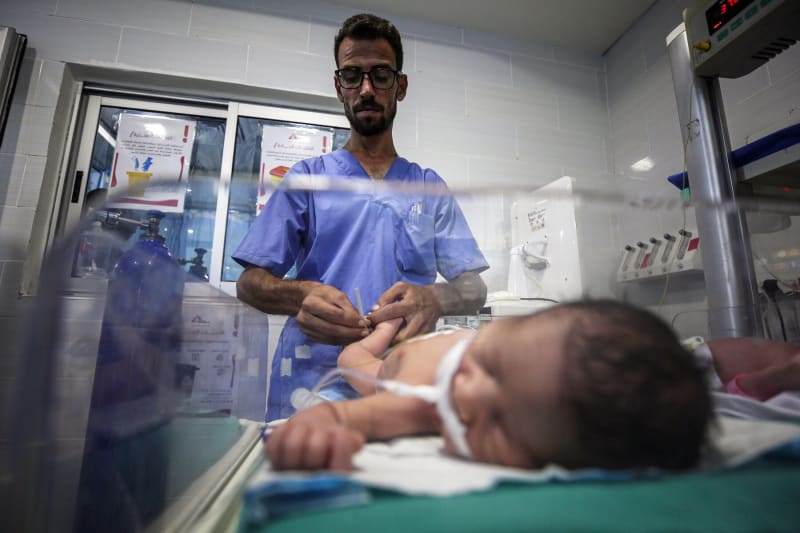
ENGLISH
Newborn Hamza al-Rubai receives medical care at Al-Helou Hospital in Gaza City on 7 September after being delivered via surgery from his mother who lost her life in an Israeli airstrike that targeted their tent near Al-Shifa Hospital. The baby is the sole survivor of his family after his parents and three siblings were murdered. Omar Ashtawy APA images
Palestine in Pictures: September 2025 The Electronic Intifada 14 October 2025
Text and production by Maureen Clare Murphy
30 pictures
Tightly packed tents after the displacement of Palestinians from Gaza City to al-Mawasi, an area west of Khan Younis in the southern Gaza Strip, 2 September. DPA via ZUMA Press.
Tiendas de campaña hacinadas tras el desplazamiento de palestinos de la ciudad de Gaza a Al-Mawasi, una zona al oeste de Khan Younis, en el sur de la Franja de Gaza, el 2 de septiembre. Abed Rahim Khatib (DPA) vía ZUMA Press.
ESPAÑOL
El recién nacido Hamza al-Rubai recibe atención médica en el Hospital Al-Helou de la Ciudad de Gaza el 7 de septiembre tras nacer mediante cirugía de su madre, quien falleció en un ataque aéreo israelí contra su tienda de campaña cerca del Hospital Al-Shifa. El bebé es el único superviviente de su familia tras el asesinato de sus padres y tres hermanos. Imágen de Omar Ashtawy (APA)
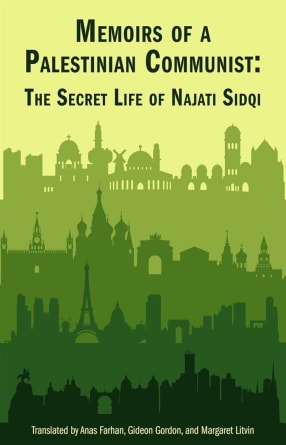
Memoirs of a Palestinian Communist, Najati Sidq. Memorias de un comunista palestino. ENG ESP
Publicado hoy.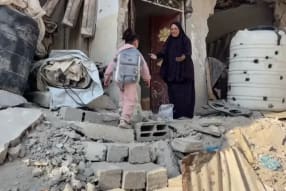
“Epistemicide” in Gaza. Breaking the Chain of Knowledge. Epistemicidio en Gaza. Romper la cadena del conocimiento. ENG ESP
Publicado ayer.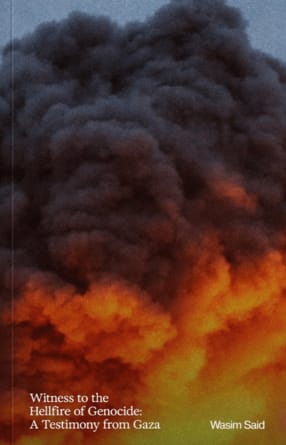
Witness to the Hellfire of Genocide: A Testimony from Gaza. Wasim Said. Desde Gaza, Testigo del Infierno del Genocidio. ENG ESP
Publicado hace 5 días.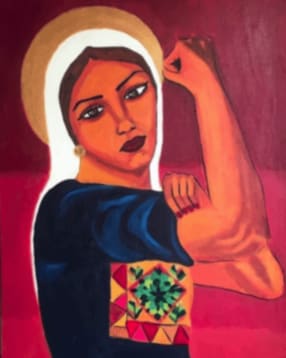
Malak Mattar. Gaza Artist and Survivor. Artista gazaití, y sobreviviente. ESP ENG
Publicado hace 14 días.
"Cuando el mundo duerme". Ensayo. Francesca Albanese
Publicado el 29 de enero.
'Fire in Every Direction' Tareq Baconi ENG ESP
Publicado el 29 de enero.
"American doctor" documentary, documental ENG ESP
Publicado el 25 de enero.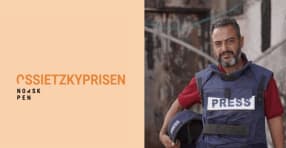
Ossietzky Prize to Palestinian journalist Sami Abu Salem. Premio Ossietzky al periodista palestino Sami Abu Salem. ENG ESP
Publicado el 25 de enero.Ver más / See more



